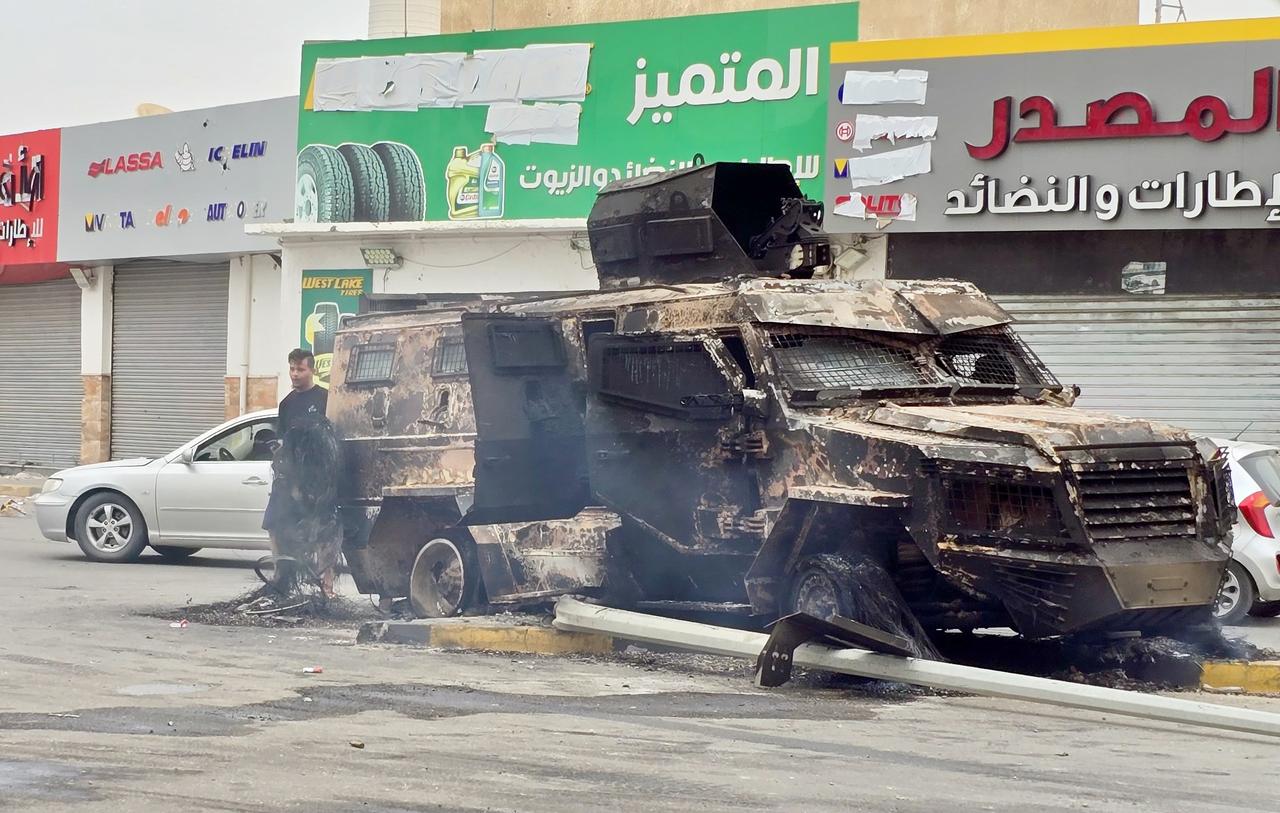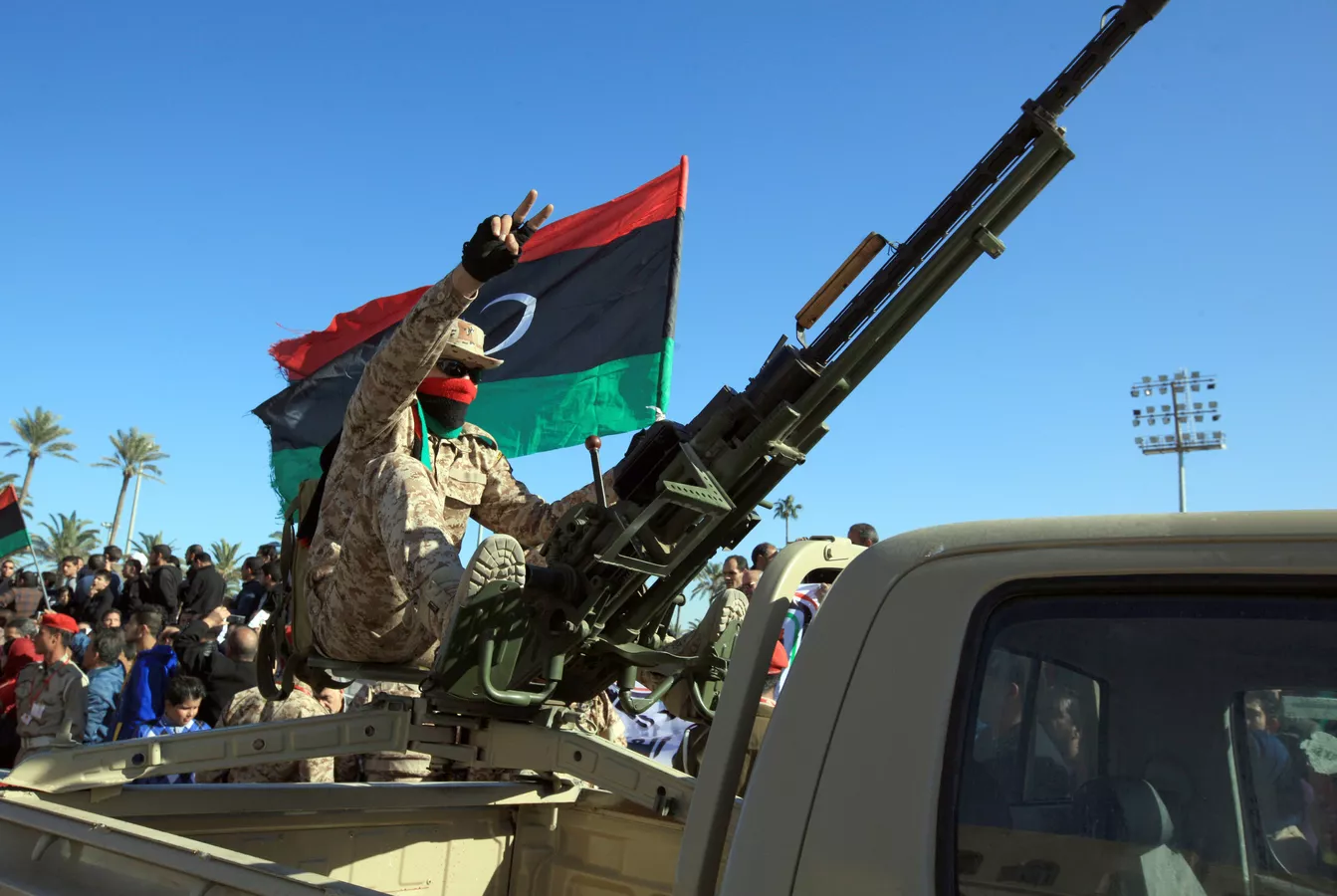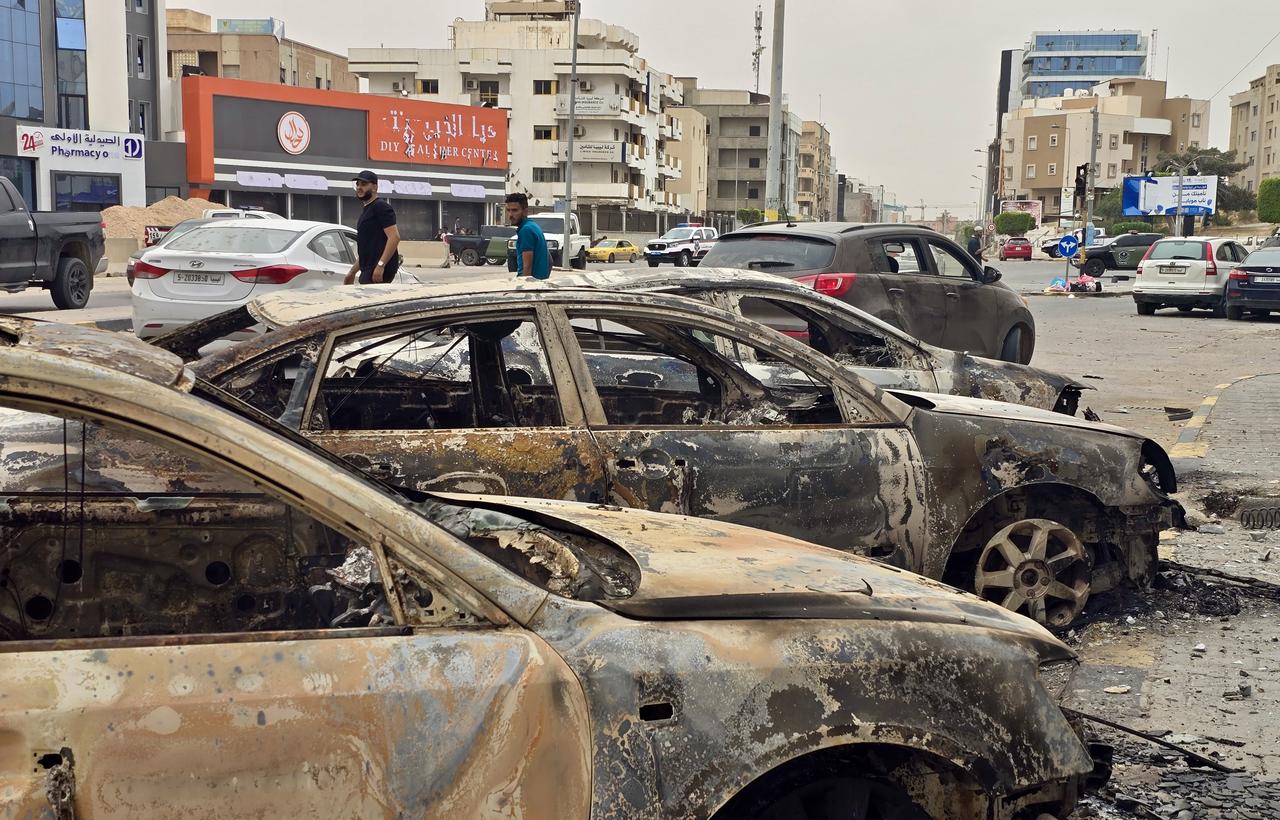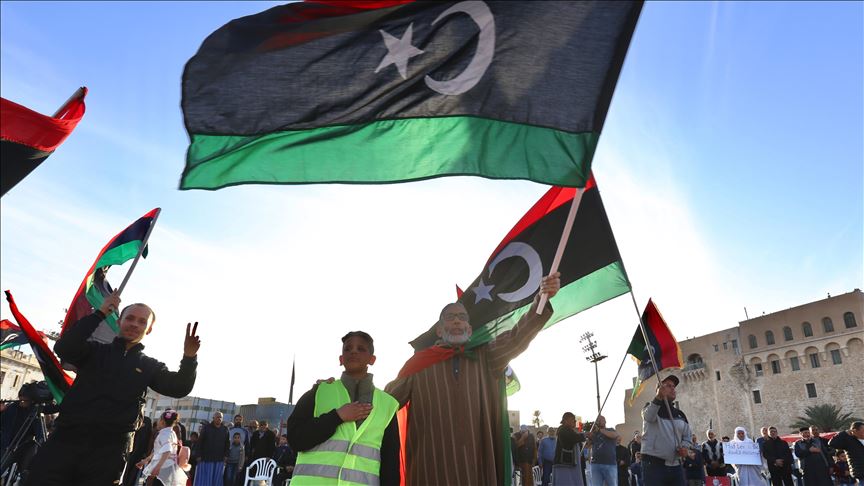
On Tuesday night, violent clashes broke out between rival armed factions in the Libyan capital, shattering the fragile calm that had prevailed since the last major round of fighting in 2022.
The immediate trigger for the clashes was the sudden and still-murky killing of Abdel Ghani al-Kikli, known widely as “Gnewa,” a powerful militia commander and head of the Stabilization Support Apparatus (SSA). He was reportedly shot dead during a meeting with leaders affiliated with Libya’s defense ministry. The fallout was swift: rival armed groups began mobilizing across the city, heavy artillery echoed through residential neighborhoods, and Tripoli’s skies were once again filled with the smoke of urban warfare.
On one side of the conflict are units under the defense ministry, including the influential 444th Infantry Brigade and elements of Misrata’s so-called Joint Forces. On the other hand is the Special Deterrence Force (Al-Rada), which formally operates under the interior ministry.
Though both factions technically report to the Tripoli-based government, they have long functioned as semi-autonomous actors with divergent political loyalties. According to Claudia Gazzini, Senior Libya Analyst at Crisis Group, the battle is as much about control over the capital’s turf and strategic assets as it is about influence within the fragmented security architecture.
This makes the fighting particularly dangerous. “The groups involved are not outsiders or spoilers from eastern Libya—they are deeply embedded in Tripoli’s power structure,” Gazzini said.
“What we’re seeing is the violent unravelling of internal alliances that have held, however tenuously, for the past three years.”

Gnewa had recently emerged as a vocal critic of Prime Minister Abdulhamid Dabaiba, despite his SSA militia technically falling under the umbrella of the Presidency Council.
He had publicly clashed with the government over appointments in major state-run companies and lucrative public contracts.
Just a week before his death, Gnewa’s associates allegedly fired on members of the board of Libya’s telecommunications holding company in a dispute said to involve a contract worth hundreds of millions of euros. Gazzini sees this escalation as part of a broader struggle over state patronage networks, which remain Libya’s main currency of power.
His death created an immediate power vacuum. Within hours, two of Gnewa’s closest allies—one responsible for internal intelligence operations, the other tasked with guarding the central bank—reportedly fled the capital. Meanwhile, SSA forces disbanded or retreated without resistance, allowing their rivals to take over bases and positions without direct confrontation. For a brief moment, it seemed that a major transition in Tripoli’s security order might occur without sustained violence.
But that moment quickly passed. By Tuesday afternoon, Dabaiba made a calculated political move, declaring that the “time of parallel security systems has come to an end.”
He pledged to overhaul the city’s fragmented armed landscape, reorganizing its prison services, police forces, and anti-migrant units. In his view, Gnewa’s death was a sign that the state was finally reclaiming control over Tripoli’s security sector.
Gazzini believes Dabaiba’s remarks had unintended consequences. Al-Rada, which controls Tripoli’s Mitiga Airport and an adjacent high-security prison, interpreted his comments as a direct threat.
Fearing they might be the next target in a campaign to reassert government authority, they launched a preemptive attack on the defense ministry-affiliated forces involved in Gnewa’s killing.
“In Tripoli, political messages are read through the lens of power and survival,” Gazzini explained. “Dabaiba’s statement, whether intentional or not, may have lit the fuse on this confrontation.”

At stake is not just who controls key facilities in the capital, like the airport, intelligence offices, or state media buildings, but the very future of Dabaiba’s leadership. While some view this as a calculated move to consolidate control and sideline critics, others fear it will backfire by igniting a broader war in the capital.
“What we’re seeing is not simply a crackdown on rogue actors,” Gazzini said. “It’s an elite power struggle playing out with tanks in the streets.”
For ordinary residents, the effect is depressingly familiar. Once again, schools are closed, roads are blocked, and families are sheltering indoors while rival gunmen exchange fire in their neighborhoods.
The Libyan National Unity government quickly declared victory, announcing that the Defense Ministry's 444th Brigade had seized control of the militia's headquarters in Tripoli's Abu Selim district.
Prime Minister Abdulhamid Dibeybe congratulated the army and police forces for successfully establishing state authority during the clashes.
But the human toll has been significant. Officials reported 70 wounded, with several in critical condition, according to Abdulwehap, highlighting the severity of the fighting that has once again shattered the fragile calm in the capital.

"Kikli ran detention centers and protection rackets, not prayer circles. 444 Brigade provides security for Western embassies, not jihad. The conflict is about checkpoints and cash flows, not caliphates," El Gomati explained, cutting through misconceptions about the nature of Libya's factional fighting.
"The main target: the Special Deterrence Force (Radaa), which controls Mitiga airport, prisons, and much of Suq al-Jumaa, in the eastern part of the capital," says El Gomati. "Battles are raging in downtown Tripoli. Tanks are being deployed from the southern axis points of Ain Zara, and mortars are being used in densely populated central Tripoli."
"Civilians are trapped. Major roads are cut. Meanwhile, reinforcements from across Western Libya and reports of a convoy from the East are pouring into the capital, turning Tripoli into a powder keg," El Gomati adds, painting a grim picture of the escalating situation.
In typical fashion for Libya's stop-start conflicts, the United Nations Support Mission in Libya (UNSMIL) called for an unconditional ceasefire in all civilian areas and urged parties to resolve differences through dialogue. The Libyan National Unity government has since announced that a cease-fire agreement has been reached.
"It isn't just another violent episode; it's a preplanned purge sanctioned by external powers gone sideways," warns El Gomati. "If it escalates further, it risks a humanitarian disaster in a city of over 2 million."
While government forces appear to have gained the upper hand in this round of fighting, observers remain skeptical about lasting stability.
The swift moves by official forces to capitalize on Kikli's death suggest an opportunistic push to consolidate control rather than a comprehensive security strategy.